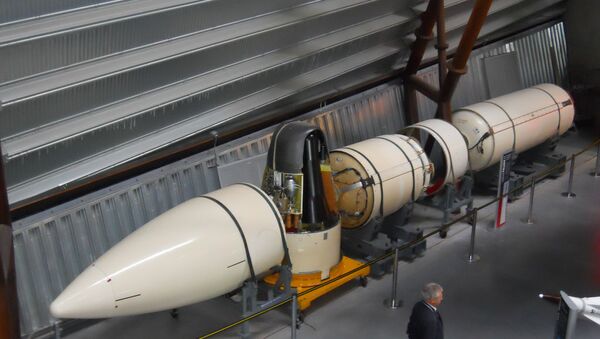VIENNA, December 8 (Sputnik), Daria Chernyshova — The Vienna Conference on Humanitarian Impact of Nuclear Weapons has discussed the risk drivers for deliberate or inadvertent nuclear weapons use, outlining the gravest consequences of human errors, technical flaws and cyber security threats.
“States that possess nuclear weapons consider them as important for their security — that nuclear weapons deter war precisely because of their destructive force. It is therefore no surprise that progress on nuclear disarmament has been so slow,” Austrian Foreign Minister Sebastian Kurz said in his opening remarks to the conference.
Human and technical factors that could lead to detonation of nuclear weapons varies from human error, negligence, miscalculation, miscommunication, technical faults, risk calculation, vulnerability to cyber security.
“By nature, nuclear assets were extremely vulnerable to cyber attacks,” Camille Francois from Harvard Law School Berkman Center for Internet and Society said, adding that this is due to their strategic importance.
“I found that nuclear weapons are not really symbols of national power or symbols of national prestige, nuclear weapons are machines, they are man-made machines, designed by human beings, maintained by human beings. And the reason that is important is that all machines eventually go wrong,” Eric Schlosser, author of “Command and Control: Nuclear Weapons, the Damascus Accident, and the Illusion of Safety” said during the session on Monday.
“So it is hard to see how fallible imperfect human beings can ever create a machine that is perfect. And this is important to keep in mind with nuclear weapons, because nuclear weapons are the most dangerous machine ever invented,” Schlosser stressed.
He went in by underlining the fact that nuclear weapons are connected to other machines – places, missiles, which are in turn attached to computers, communication systems and radars. And that human beings are good at creating sophisticated systems, but not good at controlling them. That said, the author continued by saying that the technology has not been fully in control since the very beginning, and in July 1945, as the United States was preparing to detonate the first nuclear devise, the scientists were not sure if the atmosphere would go on fire.
“From the very beginning of this technology there has been a sense that we have created it, but we have not fully and completely mastered it,” Eric Schlosser said. “In designing these machines, there were fundamentally different goals – always versus never.”
Nuclear weapons were designed to detonate, as well as not to detonate ever. However, throughout the human history there were accidents when nuclear weapons could have detonated. The examples, according to Schlosser, are numerous and the consequences would have been catastrophic.
“As long as nuclear weapons exist or assembled, there would be a risk of catastrophic accident and a country that possesses nuclear weapons endangers its own citizens by having it, left alone its enemies,” Schlosser said.
Seven countries — Russia, the United States, the United Kingdom, France, China, India, Pakistan — currently possess nuclear weapons. North Korea and Israel are believed to possess such weapons.
The conference on Humanitarian Impact of Nuclear Weapons takes place on December 8-9 in Vienna. Through the conference, Austria wants to strengthen global nuclear disarmament and non-proliferation, as well as contribute to the discussion about risks associated with the development and use of nuclear weapons.

